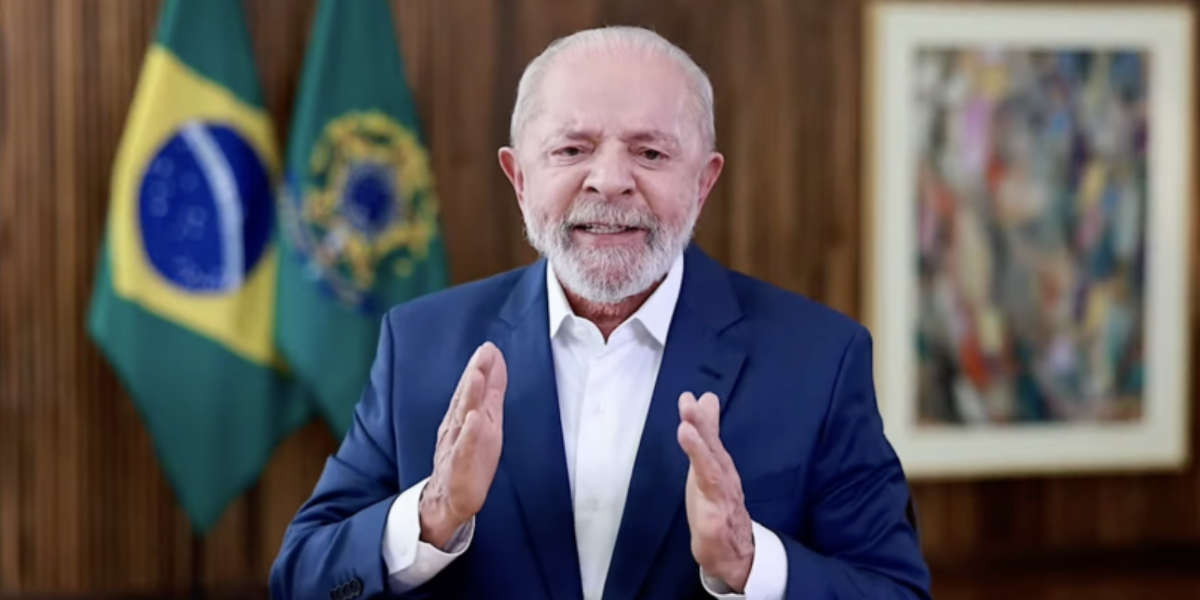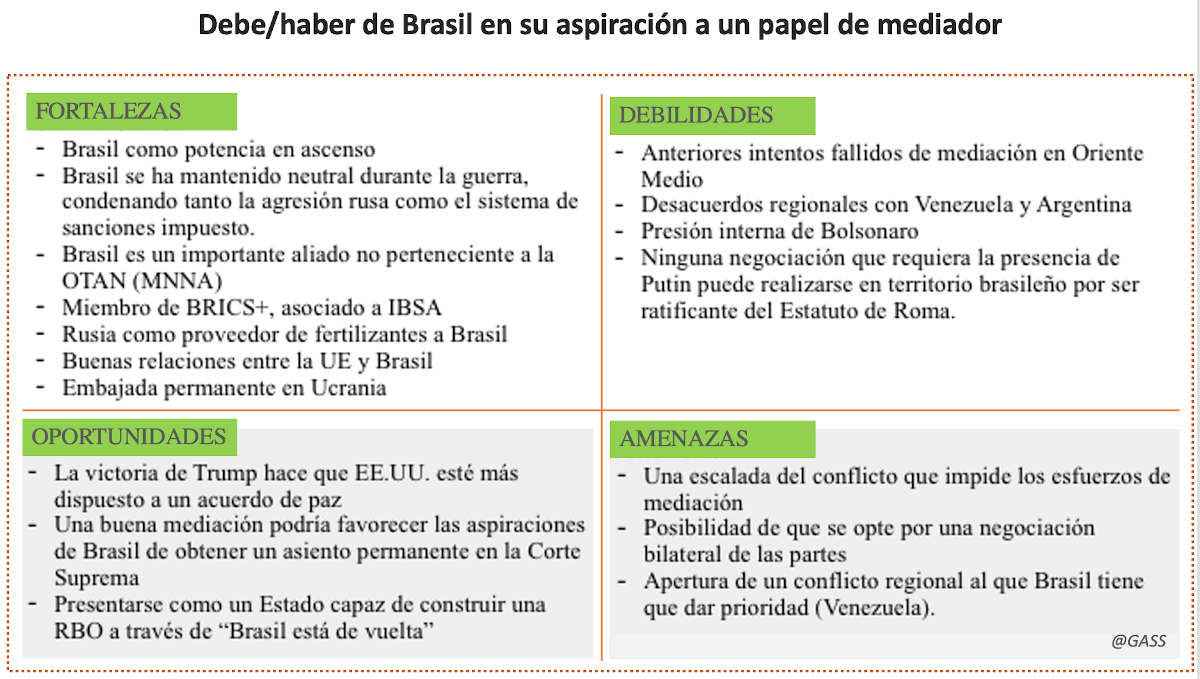In the picture
President Lula da Silva speaks by video at the BRICS 2024 summit [Planalto].
The election of Donald Trump has put the possibility of progress in the cessation of hostilities in the Ukrainian war on the 2025 calendar. Conflict resolution usually relies on the attendance of one or more mediating countries that can count on the confidence of both contending sides. Lula da Silva's Brazil, interested in highlighting its own profile as a country that understands Russia and China and at the same time is part of the West, has offered its diplomatic services for this peace mission statement . So far Brazil has not been able to take steps in that direction, but says it is prepared for the changes that may occur as of January.
One of Donald Trump's promises to be reelected president of the United States has been to achieve a peace agreement to end the war in Ukraine. Little is known at the moment about how he will raise the mechanisms of dialogue between the parties to achieve a resolution. For his part, Vladimir Putin has spoken about the possibility of mediating countries, and in September he referred to China, India or Brazil. All three have already indicated in the past their willingness to play such a role. Brazil sees itself as particularly well suited for such a role, as a power average.
Brazil's interest in becoming a mediator
Brazil has a reduced military capacity as it is located in a relatively safe geographical area due to the absence of external threats to its security. Within a multipolar international arena, Brazil presents itself as a power average and aspires to be one. This idea has been exploited by Lula da Silva through his 'Brazil is Back' strategy, which, wielding the concept of 'grande nação', defines Brazil as an agent with the capacity to actively address critical global issues and to be the architect of a rules-based international system. Rather, one of Brazil's major ambitions would be a reform of committee Security, claiming the lack of representativeness of the Global South and constituting part of the group of states requesting a permanent seat(G4).
To this end, Brazil has a approach based on non-alignment and strategic autonomy, so that it can position itself as a mediator in conflicts, displaying neutrality and credibility. Something it has already done both regionally and internationally (in 2010 it mediated in the Iran nuclear crisis, together with Turkey; although the negotiations did not culminate, Brazil gained a great deal of experience). During the 20th century, mediation efforts in global conflicts were almost reserved for European states. Today, the perception of their lack of neutrality (including Switzerland) encourages the countries of the Global South (in particular the IBSAs: India, Brazil and South Africa) to try to present themselves as shapers of the geopolitics of the new century.
On the other hand, Brazil is interested in stability in the multipolar scenario in order to have greater influence. Disagreements over the war in Ukraine undermine its regional leadership role, as divisions are created among those who are particularly aligned with Russia/China (see Venezuela) or with the United States (as is the case of Milei's Argentina). This also manifests itself on the Lusophony that Brazil wants to exploit to project itself internationally, since while Portugal or Cavo Verde support Ukraine, Russia is gathering support in Portuguese Africa; an example of this is the agreement defense with Sao Tomé.


